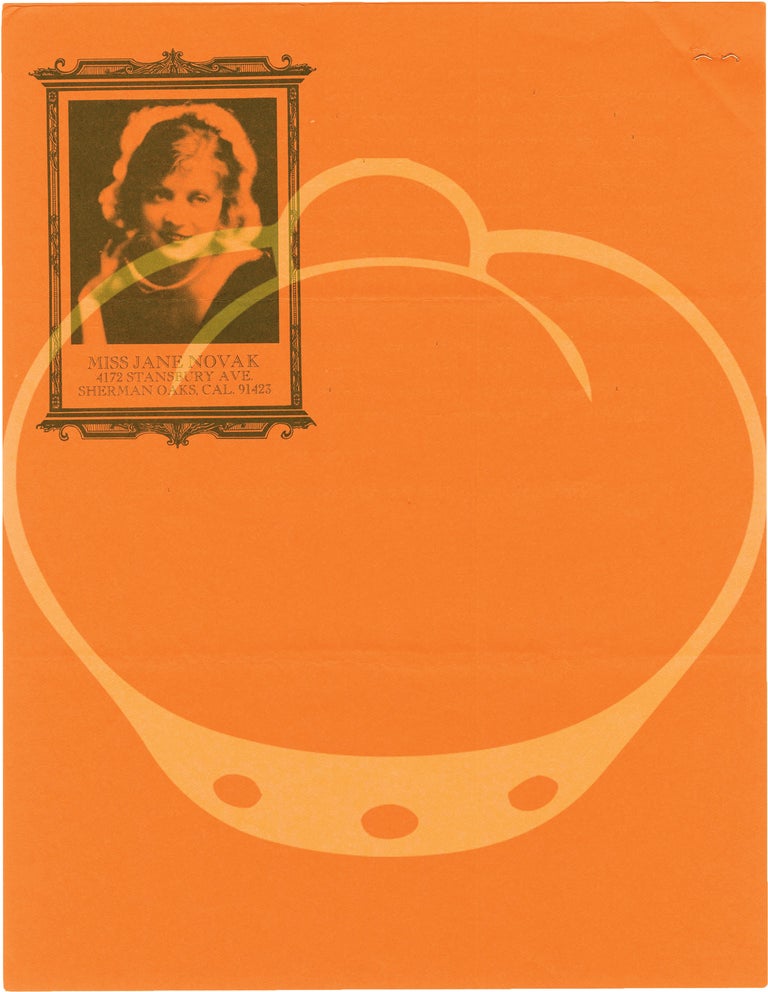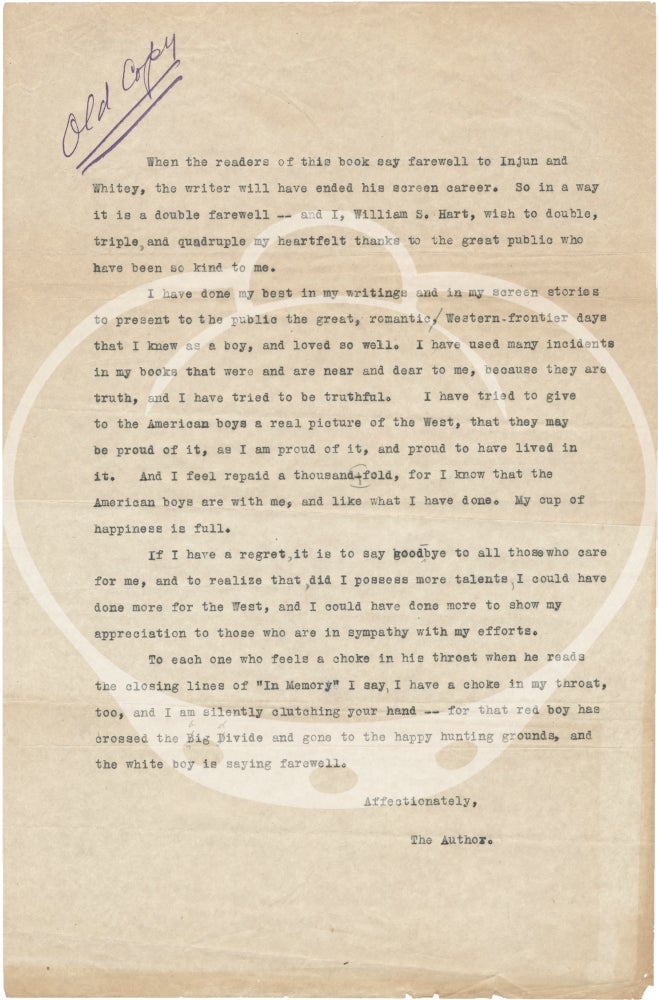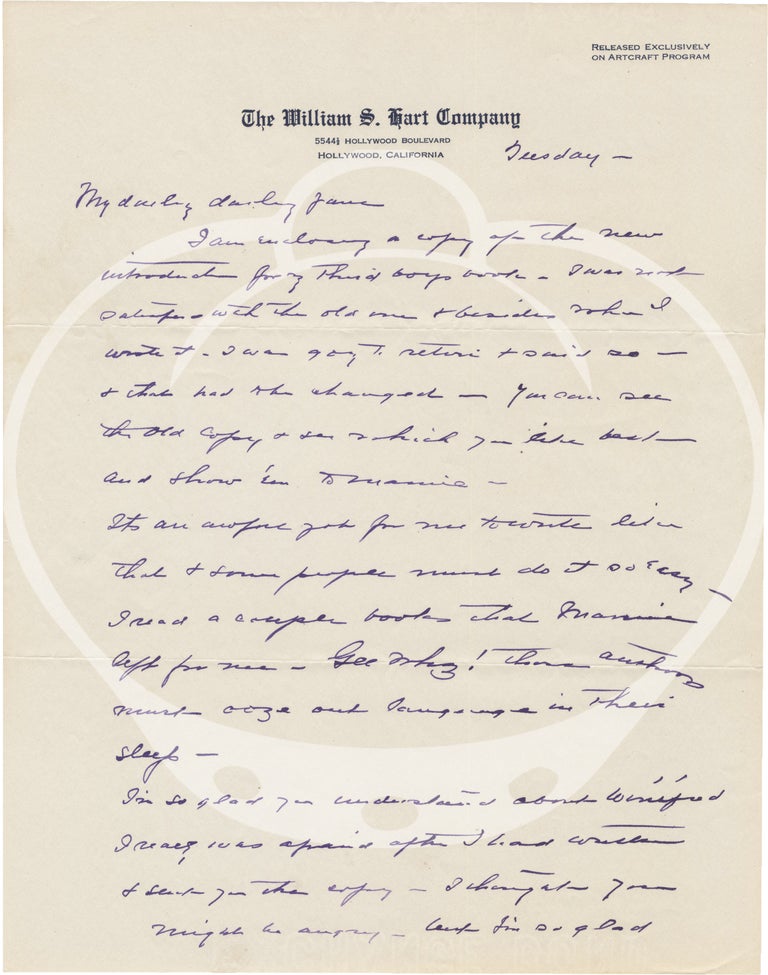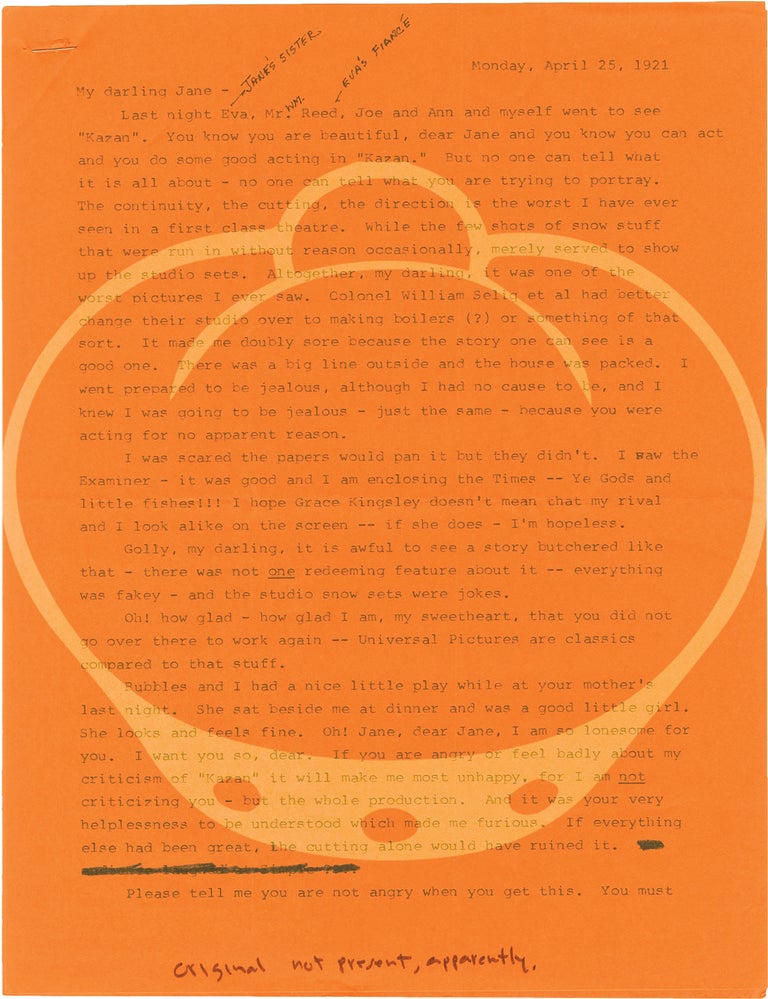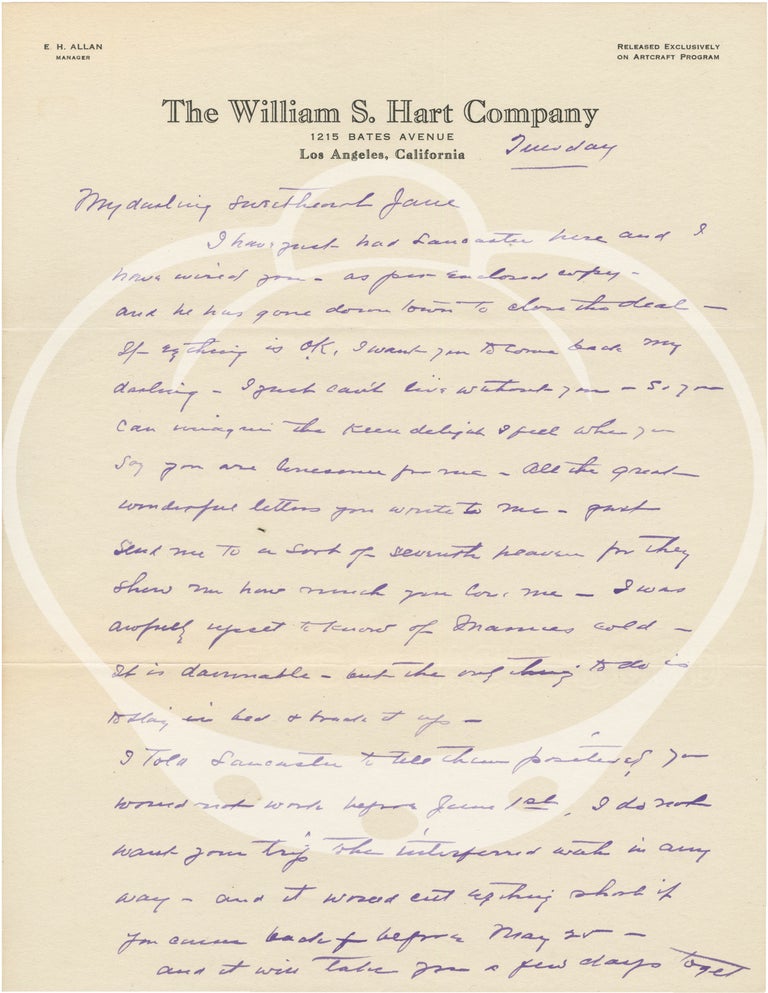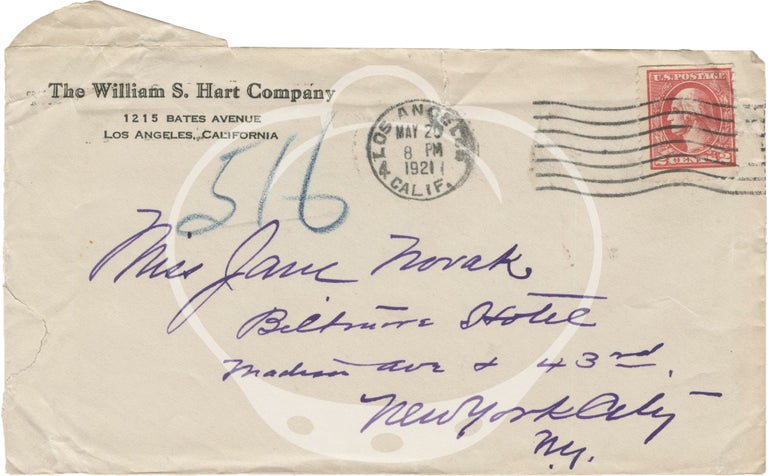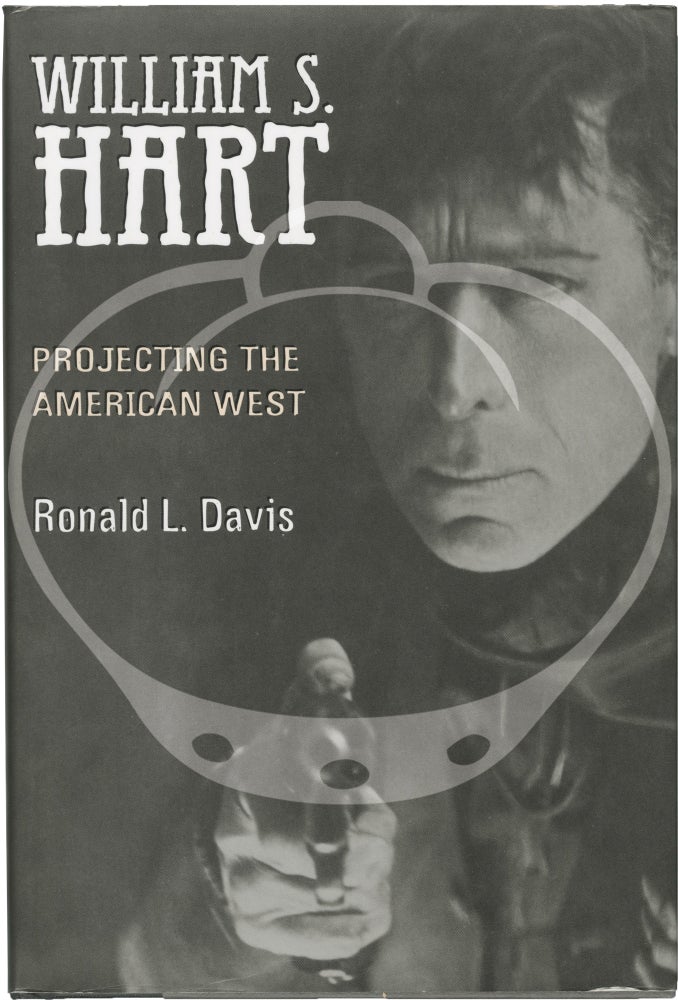Archive of 41 original autograph letters from silent film actor William S. Hart to actress Jane Novak, 1921
N.p. N.p., 1921. Archive of 41 autograph letters from early silent film actor William S. Hart to his fiancée, actress Jane Novak, written on Hart's personal letterhead and dated between May 4 and 26, 1921. Included with the letters are their original mailing envelopes (addressed to Novak's residence at the Biltmore in New York) as well as typescript transcriptions of the letters, with occasional manuscript ink annotations amending errors and providing details on locations, written on Novak's orange and purple letterhead.
The archive also contains two typescript pages from an introduction to a children's book written by Hart, the final story in his "Boys Golden West" series, about the adventures of two boys—one Native American boy named Injun and one white boy named Whitey.
One of the great Western actors of the early silent film era, Hart quickly gained fame in 1915, after appearing in a series of popular two-reel Western short films for producer Thomas Ince. The shorts' success led to a series of feature films and a lucrative contract with Famous Players-Lasky in 1917. Hart was one of the few Western stars of the period interested in creating realistic Western films, eschewing elaborate costumes and overblown action sequences for gritty, rugged storylines with moral themes, and often making use of authentic costumes and props.
In 1921, the then-24-year-old Novak was in the middle of a divorce, leaving her with a three-year-old daughter and a burgeoning acting career. She had already appeared in four films opposite Hart: "Selfish Yates" and "The Tiger Man" in 1918 and "The Money Corral" and "Wagon Tracks" in 1919, with a fifth film, "Three Word Brand," planned for release in October 1921. Always conscious of his public image, Hart (who had turned 56 in 1921) proposed to Novak, in the hopes of both gaining publicity for the film and rehabilitating his own career, which had slowly begun to flag. As the archive presented here makes readily apparent, however, regardless of Hart's initial motivations for proposing to Novak, the couple soon became quite taken with each other.
The letters reveal a different side of the famously steely Hart, who wrote Novak from his home in Los Angeles daily (and occasionally multiple times a day) over the course of the month of May, when Novak was waiting for her divorce to be finalized and living in New York with Hart's sister and business partner Mamie. As a whole the letters are strikingly impassioned, overflowing with affection, repeatedly asserting Hart's wishes to be with Novak: "You are my world ... I love you up to the sky and back and again and all 'round the hills... we will never be parted anymore, dear—where you go, I go".
The month appeared to have been a largely solitary time for the actor, who notes his loneliness continually throughout the letters: "It is not human this separation. I can't do anything. I can't go anywhere. I just go home and stay by myself." His solitude was undoubtedly compounded by his semiretirement from acting after years of struggling with fame and the studio system, having given up his own studio in order to develop his ranch, marry and raise a family, and write. Perhaps unusually for the time, however, Hart reassures Novak of his support whether or not she chose to continue working after their marriage: "My darling can work and star or not work and star—just as she wishes."
Creating a home together was at the forefront of Hart's dreams for married life with Novak—one letter discusses his purchase of an additional 40 feet of property adjacent to his home on DeLongpre Avenue in Los Angeles, in hopes that Novak would design, decorate, and "fix it just as you and Mamie want it" without regard to expense. Being able to indulge Novak regardless of the cost appeared to have been a point of pride for Hart, as his letters are peppered with instructions to spend money in New York, urging her to attend Broadway shows, dine out every night, and shop often, saying "I care absolutely nothing for money. I have toiled through poverty all my life with only one aim—to earn money to make those I love happy." Several letters even mention wire money transfers for Novak to buy fur coats and diamond bracelets from Tiffany's.
Although intensely amorous, the relationship between the two actors was short-lived, and the engagement had been called off by June, purportedly as a result of Mamie's concern over sharing her life with Hart with another woman. Hart's career never entirely recovered from his reprieve from film, and he was dropped from a contract by Paramount shortly after, while Novak's career largely faded after the advent of sound film.
The archive presents a unique, exceedingly personal look into one of the glamorously dramatic, whirlwind relationships which characterized the early days of Hollywood, as well as providing a glimpse into the intimate, and surprisingly sentimental, affairs of one of the first Western screen icons.
Letters varying in size, generally 8.5 x 11 inches. Near Fine, with occasional rust marks from paper clips to the top left corners. Envelopes and transcriptions Near Fine.
[Book #154440]
Price: $6,500.00
See all items in: 1920s Cinema, Actors, Archives, Best Copy in the World, Letters, Romance, Silent Film, Western
![[Book #154440] Archive of 41 original autograph letters from silent film actor William S. Hart to actress Jane Novak, 1921. Silent Film, William S. Hart, actor, Western Americana.](https://royalbooks.cdn.bibliopolis.com/pictures/154440.jpg?width=768&height=1000&fit=bounds&auto=webp&v=1706260614)
